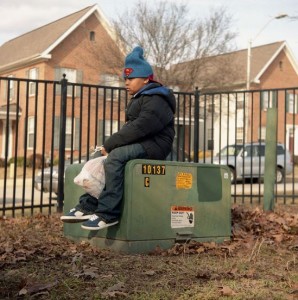The state of boys: In crisis

THE CRISIS FOR BOYS: The reasons may be unclear but boys fare poorly in a range of education measurements.
By Rob Nikolewski │ New Mexico Watchdog
SANTA FE, N.M. — We’ve heard plenty about the so-called “War on Women” and how society doesn’t do enough to nurture its girls, but I’ve got news for you: Boys aren’t doing so well, either.
In fact, a quick glance and Google search turns up some startling numbers that indicate millions of boys aren’t just heading into a danger zone but already are living in it.
Some national statistics:
*Preschool boys are expelled nearly five times more often than girls
*Boys are four times more likely to be diagnosed with learning disorders
*Boys are 30 percent more likely to flunk out or drop out of school
Here in New Mexico, the figures are just as bad, if not worse.
Two weeks ago, the Legislative Finance Committee released the state’s dropout rates, and the statistics were sobering: 58 percent of the dropouts were boys — 16 percent higher than for girls.
The people at LFC did some more digging for me and came back with even more depressing numbers.
Boys make up 62.5 percent of the students in the past school year suspended or expelled and 60.7 percent of those who had to repeat the ninth grade. The numbers for Hispanic and Native American boys were disproportionately high.
The pattern continues into higher education.
The number of women attending colleges and universities across the country first exceeded men back in 1979, and the numbers have widened since. Today, young men account for less than 43 percent of those enrolled in college.
And the same goes for those enrolled for post-graduate studies, where women have outpaced men every year since 1988.
The numbers in New Mexico mirror that.
For example, at the University of New Mexico this fall, 56 percent of the enrollment is female, and just 44 percent are male. And UNM enrollment officials told me we have to go back more than 30 years to find a time when men outnumbered women on the UNM campus.
Yet there’s been a relative silence about all this. It would be safe to guess the average American isn’t aware of these figures and you can bet, if the numbers were reversed, there would a national hue and cry.
But the huge question is why the numbers for boys have eroded so relentlessly.
What in American society in recent years has caused so many boys to fall through the cracks?
Is it an absence of fathers?
A work force that is increasingly more service-oriented and less blue-collar?
One recent book claims schools are “boy unfriendly” by focusing a curriculum on “writing about ‘feelings’ and its purging of ‘high-action’ reading material, from the rise of video gaming and schools’ unease with technology to the lack of male teachers as role models.”
Another theorizes schools have boys “spend too much time sitting and not enough time learning by doing, making and building things.”
Maybe, but didn’t the old-fashioned school insist on boys sitting still in class and absorbing the material? Plus, that doesn’t explain why the problems have gotten worse.
Or is it something — or some things — else?
I’ve never been much for the ethnic or gender cheerleading that has littered far too many policy discussions in the past 30 years or so. Whether the debate centers on economics or culture, we too often slip into a zero-sum game exercise where, if one side wins, that automatically means another side loses. That’s a false choice.
Turning around the statistics for boys must not come at the expense of our girls.
But it’s often said that admitting you have a problem is the first step toward fixing it.
America and New Mexico, we have a problem. And it’s a big one. Our boys are in crisis and we need to find some answers before another generation finds itself with a one-way ticket to the underclass.
(This commentary originally ran Sunday in the Santa Fe New Mexican.)







